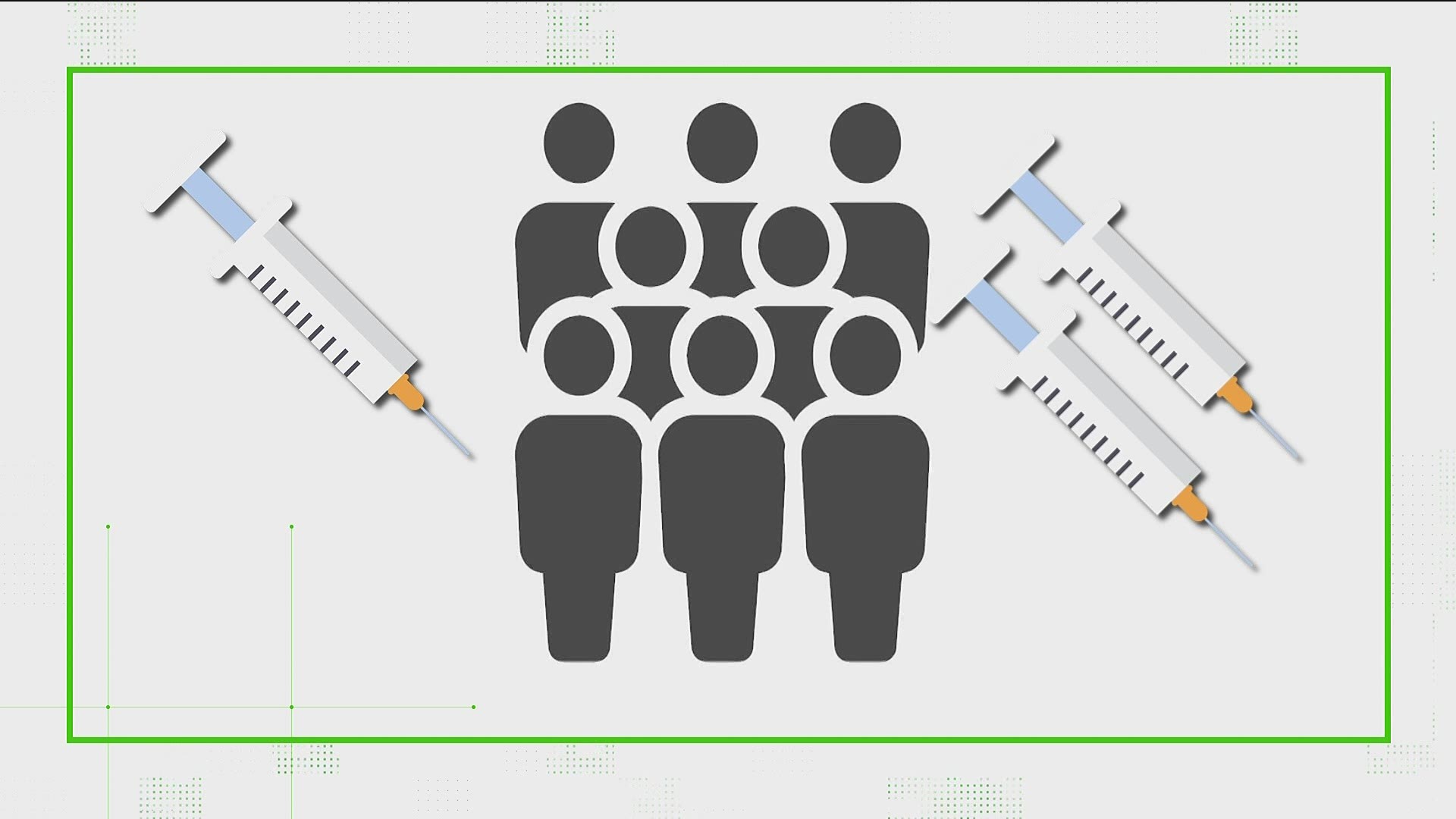With the vaccine in high demand, some argue it's better to vaccinate more people with just one dose – than fewer people with two.
There are a lot of numbers floating around with this idea, so the Verify team is turning to the experts.
QUESTION
Dose one dose fully protect you from COVID-19?
SOURCES
- FDA briefings on the Pfizer and Moderna vaccines
- January 4th FDA statement
- Dr. Colleen Kelley, Associate Professor of Infectious Diseases at Emory University School of Medicine and Principal Investigator for the Moderna and Novavax Phase 3 vaccine clinical trials at the Ponce de Leon clinical research site
WHAT WE FOUND
First, we know the Pfizer and Moderna vaccines are about 95 percent effective in preventing symptomatic COVID-19 after two doses. So why the talk of a single dose?
Turns out, early data shows there may be some immunity protection after the first shot.
Preliminary data in the Pfizer FDA analysis shows the vaccine could have an effectiveness of 52.4 percent about a week after the first dose. While early data from the Moderna trial shows protection could be around 80.2 percent after just one dose.
As a result, some online are using such data points as a reason to push for a single dose.
But the FDA cautions the single dose data "is commonly being misinterpreted," adding that trial participants who didn't get two shots were only followed for a short period of time leaving the data inconclusive.
In fact, both the Moderna and Pfizer briefings indicate when it comes to single dose efficacy, more research is needed.
The Moderna briefing cited that "there appears to be some protection against COVID-19 disease following one dose; however, these data do not provide sufficient information about longer term protection beyond 28 days after a single dose."
While the Pfizer document also indicates there "does seem to be some protection against COVID-19 disease following one dose; however, these data do not provide information about longer term protection beyond 21 days after a single dose."
Dr. Kelley reiterated such points.
"We think there is some efficacy after the first dose, but we just don't know how much or more importantly how long that efficacy might last after the first dose," she said.
"I think it’s too soon to pin an exact number on efficacy," she said. "It’s likely to be a range… but it’s unclear right now to be as high as that 80-90% estimate."
So despite the public push for a single dose regiment, we can verify that you do not get full protection with just one shot. Our Verify sources indicate the amount and duration of protection from a single dose is uncertain at this time, which is why the FDA is standing by the two dose recommendation.
11Alive's Verify team also reached out to Pfizer for further clarification:
Although partial protection from the vaccine appears to begin as early as 12 days after the first dose, two doses of the vaccine are required to provide the maximum protection – a vaccine efficacy of 95% – observed in the Phase 3 trial. Participants will continue to be monitored for long-term protection and safety for an additional two years after their second dose.
While the FDA acknowledged in its Jan. 4 statement that such questions regarding dosage are valid, the agency reiterated that such questions belong in the clinical trial setting. Dr. Kelley said the best thing to do is make sure you get your second shot until we know more.
11Alive's Verify team is here to fact-check claims being shared in the community and online. Fill out the form below with something you'd like us to Verify.

